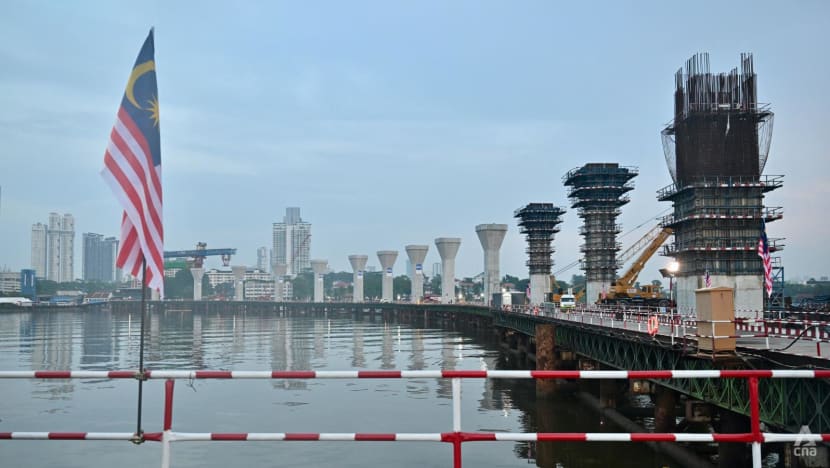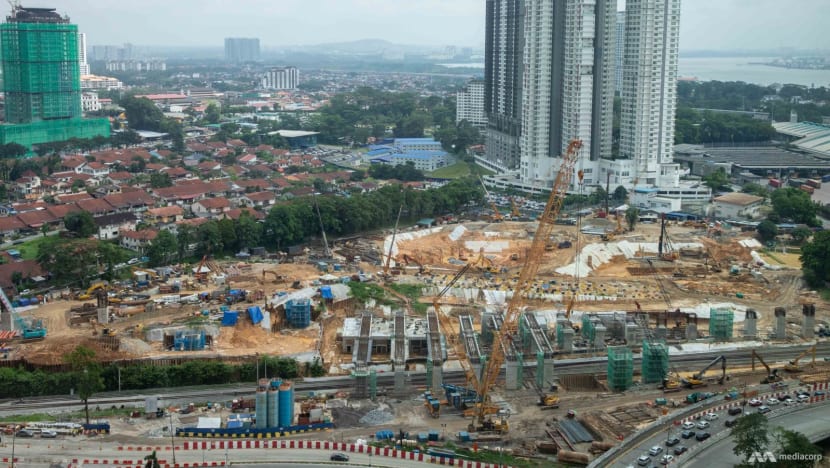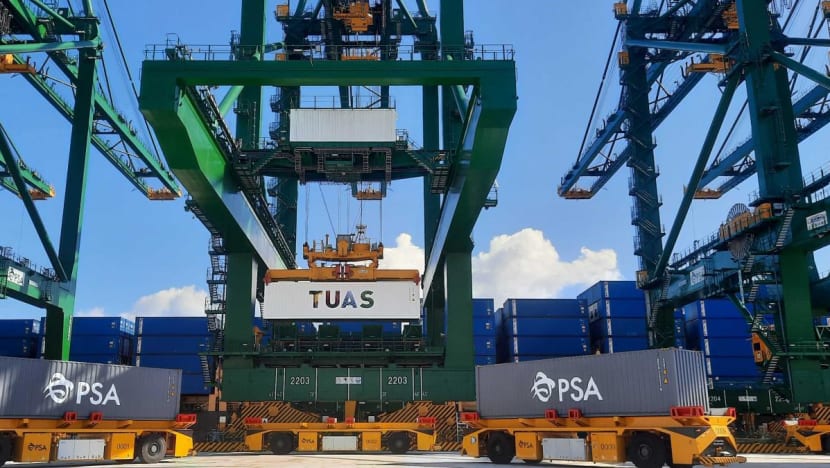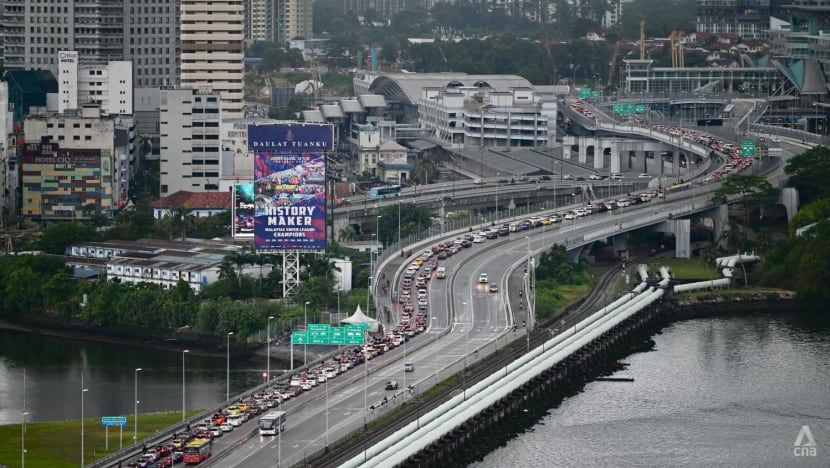Relocations, expansions among business plans as Singapore and Johor strengthen transport, economic links

JOHOR BAHRU and SINGAPORE: Businesses in Singapore and Johor are hoping to tap on new opportunities as economic and transport connectivity between the two sides strengthen in the coming years.
Some Malaysian businesses are looking to move closer to the light rail station at Bukit Chagar in Johor Bahru, to cash in on the expected increase in Singaporeans crossing over to shop and eat, when the 4km Rapid Transit System (RTS) Link is ready by end-2026.
Meanwhile, Singapore firms have started drawing up plans to deepen investments in Johor, as both sides explore a new Special Economic Zone (SEZ).
Facilitating more exchanges of goods and talent could help to solve manpower and cost pressures, some firms told CNA.
MOVING CLOSER TO THE ACTION
Ms Catherine Tee, executive director of M Lighting Design & Renovation, told CNA she is considering moving her shop closer to the upcoming RTS station, to tap on the rising number of visitors from Singapore.
Situated in Johor Bahru, Ms Tee has been in the lighting business for decades. Currently, about two in 10 of her customers are from across the Causeway.
"If we shift because of the RTS, our (Singaporean) customer base may increase another 10 per cent,” she said.
“Of course, we will still need to do some marketing, strategy and planning."
But the lighting retailer knows that expanding comes with a set of risks, as more resources and manpower will be needed.
Some businesses are holding back on plans to move for now, as the project is still a work in progress.

There is ongoing construction work and some properties and amenities are still being built, they told CNA.
Lemon Tree Restaurant, which has been selling Western food for almost 20 years in Johor Bahru, is one of those taking a cautious approach.
Founder Jeffery Bong is carefully studying the area to see if there are other food outlets that may compete for his business.
"If we expand our business closer to the RTS early, we can hop onto the initial hype in the area,” he said.
“But we need to think of every aspect of the business. These include rental, renovation, facilities and labour cost.”
Mr Teh Kee Sin, advisor of the SME Association of South Johor, told CNA that such firms have limited resources and will have to weigh the pros and cons of such a potential move.

"SMEs are very nimble, so when opportunities strike, we can just pack and go,” said Mr Teh.
He said that sectors such as retail and services do not need much preparation for moving, as there is not much machinery or heavy equipment involved.
Dr Lee Nai Jia, head of real estate intelligence at PropertyGuru, told CNA that rental rates for retail spaces in Johor Bahru have remained flat in the past few years due to the COVID-19 pandemic.
Rental prices are expected to rise by up to 10 per cent when the RTS Link is ready in about two years' time, driving some retailers to secure lease agreements now in order to lock in the current rates, he said.
TAPPING ON BROADER MARKET
Meanwhile, some Singaporean firms are already planning to tap on the proposed SEZ.
Singaporean agricultural trading firm Agrocorp International wants to export its brand of vegan cheese to the rest of the world, and plans to open a food processing facility in Johor Bahru.
Its director of strategic investments Vishal Vijay told CNA: “Johor has plenty of access to utilities such as water and natural gas, which is very important for the kind of food processing that we are planning to do.”
Johor also has “great port facilities”, said Mr Vijay, with two major ports within proximity of the area his firm is eyeing.
“At the same time, there’s also the Tuas mega port that's coming up in Singapore that we should be able to tap onto as well,” he noted.
Tuas Port is expected to be the world’s largest fully automated port when completed in the 2040s.

However, Mr Vijay noted that challenges remain, such as the notorious traffic congestion at both the Tuas and Woodlands checkpoints.
“So we are hoping that the SEZ, especially the news about potentially passport-less travel, might ease some of that congestion, because we want some of our staff to go to the facility and vice versa,” he said.
The smooth movement of goods will be another consideration by the company, he added.
Malaysia and Singapore are exploring initiatives leading up to the establishment of the SEZ.
For example, people travelling between Singapore and Johor may soon be able to enjoy passport-free clearance on both sides of the border, and cargo clearance processes at land checkpoints may also be digitalised.

Mr Jeremy Mun, chief operating officer of electronics manufacturer Aztech Global, told CNA a smoother flow of people and goods could help his firm ease manpower shortages.
"The support given for talent grooming is crucial for us because talent crunch is a thing in Malaysia, especially in the skilled technicians as well as the engineering talents,” he said.
Possible financial incentives, such as lower tariffs in the SEZ, could also help firms like his become more profitable, added Mr Mun.
"If we could get some tax incentives or some grants, that will be really helpful to us to bring down the costs,” he said.
For now, firms are waiting for more details like the economic sectors of cooperation and geographical coverage of the SEZ.
Further updates are expected at the 11th Malaysia-Singapore Leaders’ Retreat later this year.


No comments
Share your thoughts! Tell us your name and class for a gift (: